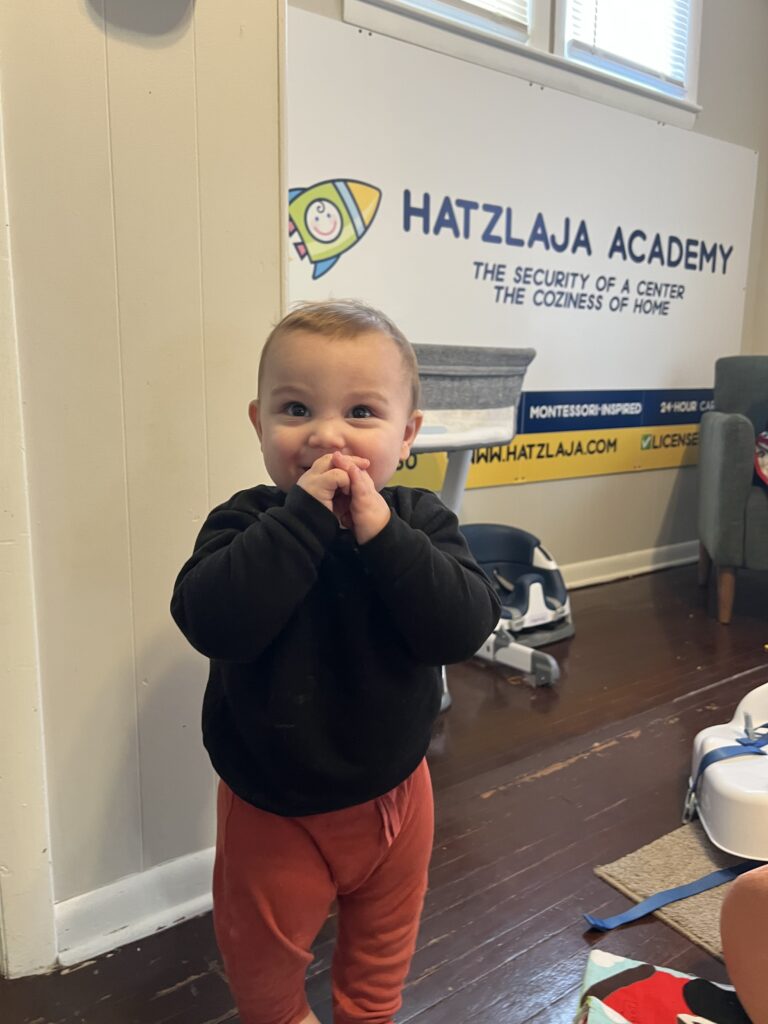Montessori education is a unique approach to learning that fosters independence, focus, and hands-on discovery. Developed by Dr. Maria Montessori in the early 1900s, this method is rooted in the idea that children learn best when they are free to explore and take ownership of their education. At Hatzlaja Early Childhood Academy, we are inspired by this child-centered philosophy to nurture confident and capable learners.
The History of Montessori Education
Dr. Maria Montessori, an Italian physician and educator, founded the Montessori method after extensive research on child development. In 1907, she opened her first school, Casa dei Bambini (Children’s House), where she implemented a revolutionary approach: allowing children to learn through hands-on activities and self-directed exploration. Over time, her principles spread worldwide, influencing early childhood education and shaping a system that values individual learning styles and natural curiosity.
The Montessori Focus on Independence and Concentration
One of the core values of Montessori education is helping children develop independence and focus. Classrooms are carefully designed to encourage self-directed learning, where children choose activities based on their interests. Rather than direct instruction, Montessori teachers act as observers and guides, stepping in only when needed. This method allows children to build concentration, problem-solving skills, and confidence as they master tasks at their own pace.
The Five Academic Areas in Montessori Learning
Montessori education is structured around five core academic areas that promote holistic development:
- Practical Life: Activities like pouring, buttoning, and food preparation teach independence and fine motor skills.
- Sensorial: Hands-on materials help children refine their senses and cognitive abilities.
- Language: Phonics-based reading, writing, and vocabulary development are introduced through engaging, interactive methods.
- Mathematics: Number concepts are explored using tangible materials, fostering a deep understanding of math principles.
- Cultural Studies: Lessons in geography, science, history, and the arts encourage curiosity about the world.
Social-Emotional Growth and Community in Montessori Education
Montessori education places a strong emphasis on social interaction, emotional development, and community-building. Unlike traditional classrooms where students are grouped strictly by age, Montessori environments often feature multi-age classrooms, allowing younger children to learn from older peers while older children develop leadership and mentoring skills. This structure fosters a sense of collaboration, respect, and teamwork, as children naturally help and support one another in their learning.
At Hatzlaja Early Childhood Academy, we recognize the importance of developing well-rounded individuals who not only excel academically but also thrive socially and emotionally. Through group activities, peer collaboration, and guided social interactions, children learn essential life skills such as empathy, communication, conflict resolution, and self-regulation. In addition, our faith-based approach reinforces the values of kindness, integrity, and responsibility, creating a strong sense of belonging and community.
By focusing on both academic and emotional intelligence, Montessori education helps children grow into confident, compassionate, and socially aware individuals, prepared to navigate relationships and teamwork in school and beyond.
Montessori for Infants
Montessori principles apply to children of all ages, but the infant stage focuses on freedom of movement, sensory exploration, and self-care development. Unlike traditional childcare, Montessori for infants does not rely on restraining equipment like bouncers or swings. Instead, babies are encouraged to move freely, strengthening their gross and fine motor skills as they engage with their environment. This approach lays the foundation for independence and cognitive growth from the very start.
Why Montessori Education Matters
Montessori education provides children with more than just academic knowledge—it equips them with independence, confidence, and a love for learning. At Hatzlaja Early Childhood Academy, we are proud to offer a Montessori-inspired environment where children can explore, grow, and develop the skills they need for a successful future.
How Hatzlaja Differs from Traditional Montessori Education
Traditional Montessori education typically limits screen time and prioritizes hands-on, sensory learning. While we value the importance of tactile experiences, Hatzlaja Early Childhood Academy takes a more forward-thinking approach to technology. In today’s ever-changing world, technology is an essential tool, and we believe in teaching children how to use it responsibly and effectively. Our program ensures that children are introduced to age-appropriate technology in ways that enhance learning, problem-solving, and creativity rather than passively consuming content.
We also emphasize career education, recognizing that the careers of tomorrow will look vastly different from those of today. By exposing children to foundational skills in technology, communication, critical thinking, and innovation, we prepare them to adapt to an evolving job market. At Hatzlaja, we see today’s children as leaders of the future, and our goal is to equip them with the tools they need to thrive in any field they choose.
Faith-based Spiritual Growth at Hatzlaja
In addition, while most modern Montessori schools take a secular approach, Hatzlaja Early Childhood Academy uniquely integrates faith-based learning into our Montessori-inspired environment. We believe that spiritual growth is just as important as academic and social development, which is why we incorporate Bible-based teachings, prayer, and Biblical values into our daily activities. Our program encourages children to develop a strong moral foundation, a sense of purpose, and a deep connection to their faith, all while fostering independence, curiosity, and self-guided learning in true Montessori style. This combination sets Hatzlaja apart, providing children with both academic excellence and spiritual enrichment to guide them as they grow into compassionate, confident, and faith-driven individuals.



